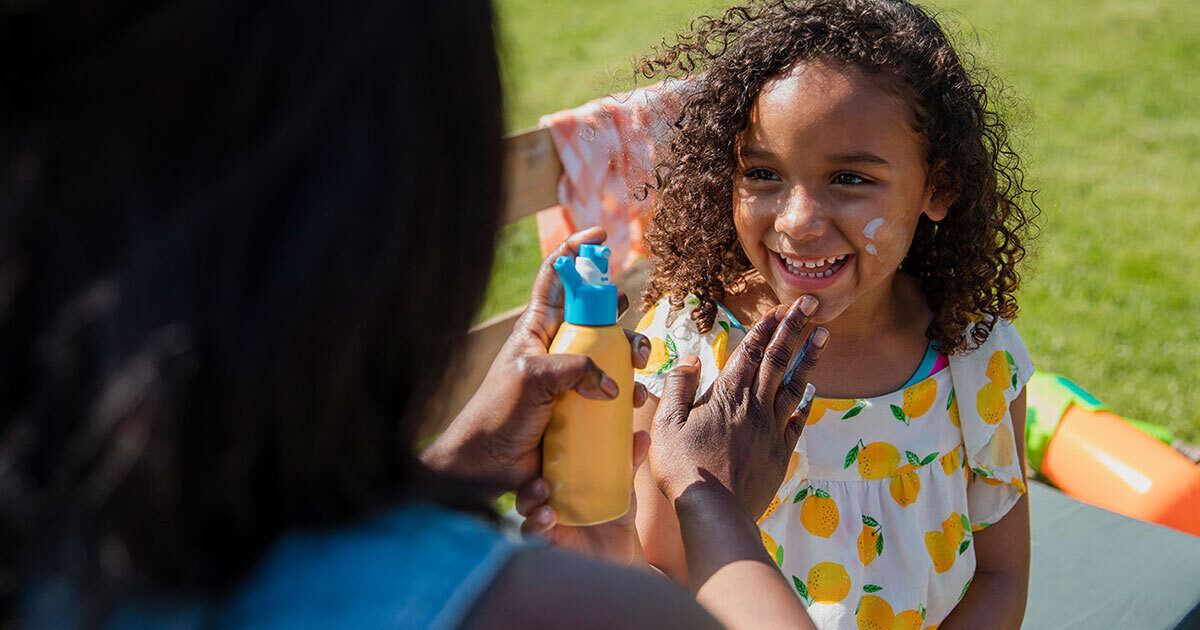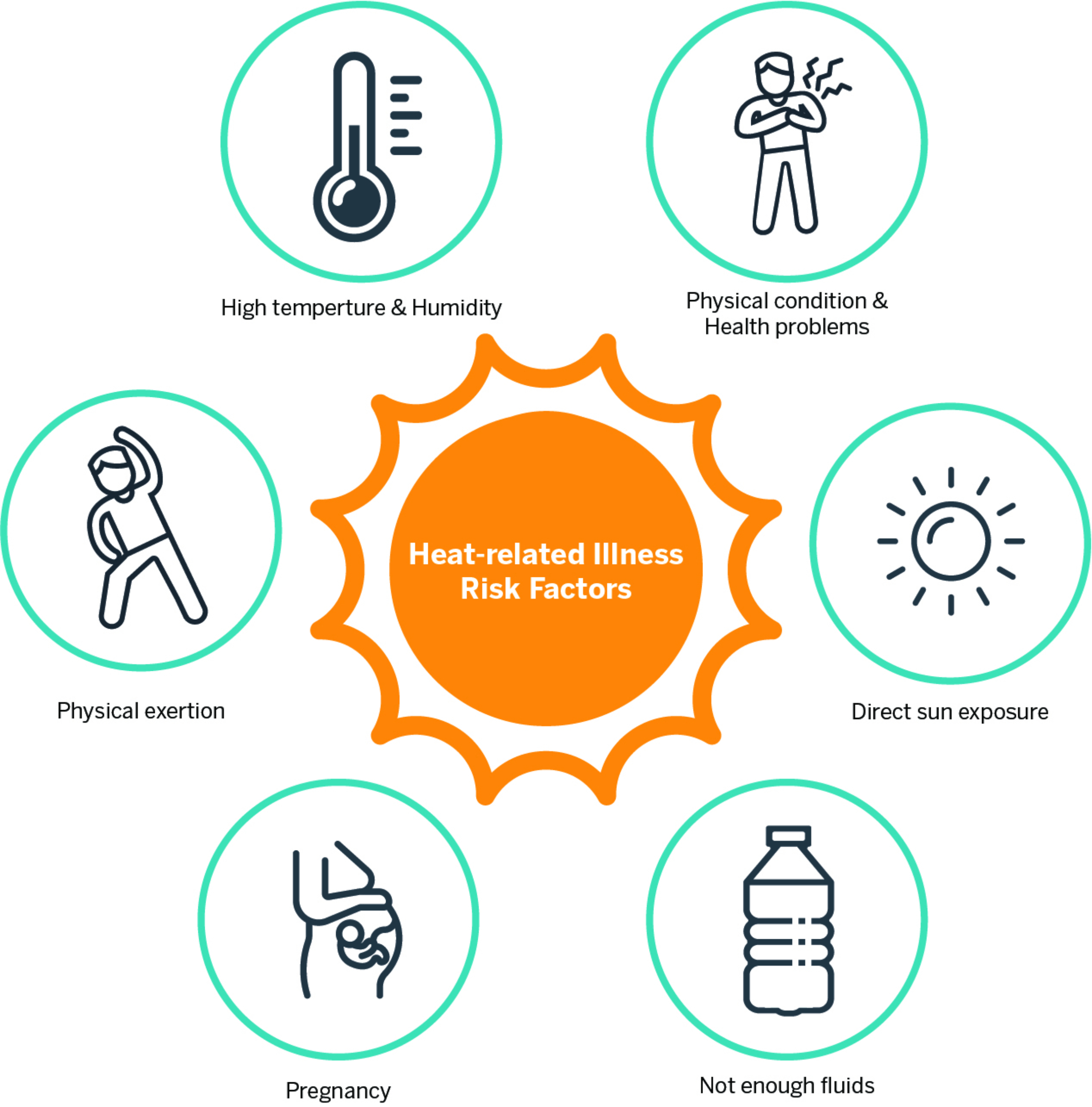Outdoor Sun Safety
Tips to help keep you safe while you enjoy the great outdoors
Reviewed by: Kristin Vinueza, MSN, RN, FNP-C
Written by: Rocky Epstein

While basking in the warm embrace of the sun can be delightful, it’s crucial to remember to exercise caution and be mindful of potential risks. Excessive exposure to the sun can have a harmful impact on your skin and lead to heat-related illnesses. It’s important to note that these risks exist not only on sunny days, but also on cloudy days and during the winter. Explore the tips below to learn what protective measures you can take to help keep you and your loved ones happy and healthy while you enjoy the great outdoors.
Protect Your Skin
The sun emits ultraviolet (UV) radiation that can cause painful sunburn, which results in red, painful, and inflamed skin. Prolonged sun exposure can also accelerate the aging process of your skin, leading to wrinkles, fine lines, age spots, and a loss of elasticity. Additionally, it increases the risk of developing skin cancer, which is the most common form of cancer found in the United States. In fact, one out of every five people develop skin cancer during their lifetime.
Limit your exposure to these harmful UV rays by:
- Finding shade or bringing your own
- Wearing light, breathable clothing, such as long sleeve shirts, brimmed hats, and sunglasses, to cover areas of exposed skin
- Applying sunscreen that is SPF 30 or higher
When applying sunscreen, be sure to check the expiration date. You also want to make sure you fully cover your exposed skin and reapply every 40 to 80 minutes and immediately after swimming or sweating. For children under six months of age, the use of sunscreen is not recommended due to the sensitivity of their skin. Instead, use clothing and shade for their protection.
For any other questions regarding skin cancer prevention and detection, speak with your primary care provider or dermatologist.
Mind the Heat and Humidity
Monitoring humidity is just as important as monitoring high temperatures, especially when planning outdoor activities or work. Humidity can mean the difference in how quickly someone can recover from heat exposure. When the relative humidity is 75% or higher, you cannot count on sweating to cool your body. Exposure to high humid conditions and temperatures of close to 100 °F can make it very difficult for your body to cool itself down.
If you find yourself (or someone around you) affected by the heat, move to an indoor area with air conditioning or an area with circulating air to begin the cool-down process. In less humid conditions, it may be easier to cool down with cool compresses, water, or by resting in a cool, shady location. You may also want to limit work or play during the hottest part of the day, which typically occurs from 10 a.m. to 4 p.m. Instead, consider planning activities in the morning or late afternoon.
The Occupational Safety and Health Administration (OSHA) and the National Institute for Occupational Safety and Health (NIOSH) have developed a free downloadable Heat Safety Tool App to help quickly assess the heat index. It also offers heat safety tips to keep you safe during the day.
Prevent heat-related illnesses by:
- Drinking plenty of water before, during, and after your activity
- Limiting your time outside
- Wearing protective clothing
- Applying and re-applying sunscreen
- Taking breaks in the shade or an air-conditioned area
Explore more tips to help you work smart, stay safe, and beat the heat this summer.

Stay Hydrated
Take frequent water breaks. Drink 8 ounces of water every 15-20 minutes. Drinking at shorter intervals is more effective than drinking large amounts infrequently, and drinking more than 48 ounces of water, or other liquids, in an hour can cause a medical emergency due to the concentration of salt in the blood becoming too low.
When you eat regular meals with water, this should typically be sufficient to maintain hydration and electrolyte balance. However, if you participate in an activity where you sweat for a prolonged period, a sports drink with balanced electrolytes can help replace the salt loss. Make sure to limit your intake, as these drinks may add considerable calories due to excessive sugar.
To help you stay hydrated, avoid:
- Energy drinks with high caffeine content
- Alcohol
- Salt tablets (it’s better to eat regular meals/snacks throughout the day to maintain balance)
Individuals Who Are Pregnant or Have Chronic Conditions
For individuals who are pregnant or have chronic conditions, extreme heat can be particularly dangerous. If you are pregnant, your body must work harder to cool down both your body and your unborn baby’s. You are also more likely to become dehydrated, which means you won’t be able to cool your body as quickly or efficiently. Certain medical conditions, such as migraine, multiple sclerosis, autoimmune disease, heart disease, rosacea, and lung conditions, can also become worse due to exposure to rising temperatures.
Older Adults and Children
For older adults and children, extra precautions to stay hydrated and cool during hot weather should be exercised. Older adults are most vulnerable since they do not have the same capacity as other adults to cool their bodies as quickly or efficiently. Children also have a reduced ability to dissipate heat, and they often forget to hydrate while playing. Dress children in light, breathable protective clothing and apply sunscreen to any exposed skin. Be sure to check in with children every 20-30 minutes and make sure they hydrate with water.